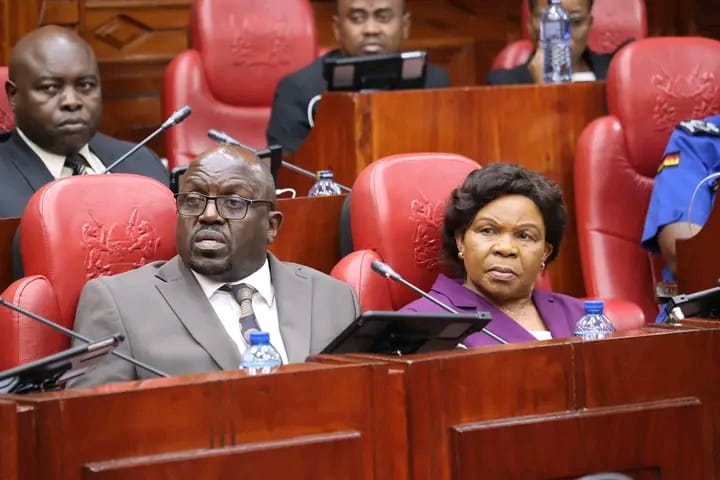NPSC CEO and IG Kanja Give Update on Upcoming Police Recruitment
Share
The National Police Service Commission (NPSC) has affirmed its readiness to commence the recruitment of 10,000 police officers.
While addressing the Departmental on Administration and Internal Security NPSC Chairperson, Dr. Amani Komora underscored the Commission’s preparedness despite resource challenges.
“We have had a series of meetings as commissioners and, taking into account the deficit of resources, we are still ready for the recruitment process,” said Dr. Komora.
Supporting the Chairperson’s statement, the Commission’s CEO, Peter Leley, emphasized that the recruitment will be anchored on transparency, integrity, fairness, inclusivity, and accountability. He noted that the Commission will use the Police Recruitment System (PRS) a newly developed digital platform.
According to Leley, the PRS is designed to enhance efficiency, accuracy, and transparency at every stage of the recruitment process.
“The PRS guarantees integrity by minimizing human interference and generating a verifiable digital trail throughout the recruitment process,” Mr. Leley explained.
Committee Members, however, raised concerns about accessibility of the digital platform, especially in marginalized areas with no network coverage.
In response, Leley assured the Committee that the Commission has been actively publicizing the upcoming recruitment through national television, newspapers, radio, and local stations.
He further stated that recruitment camps will be established in marginalized areas to facilitate registration for those without internet access.
The Committee also inquired whether the PRS had been piloted, tested, and proven before.
NPSC System
Leley confirmed that this would be the first time such a system is used in the recruitment of National Security Organs.
Expressing caution, the Committee Chairperson, Gabriel Tongoyo, noted that while innovation is welcome, change must be carefully planned.
“Unless a pilot test is done and approved, the Commission should consider sticking to manual recruitment,” he advised.
Also present at the meeting were senior officials from the National Police Service (NPS), including the Inspector General, Mr. Douglas Kanja, and the two Deputy Inspector Generals, who are part of the Commission, alongside the Director of Criminal Investigations (DCI) and other NPS representatives.
NPS and NPSC Functions
On the matter of overlapping functions between NPS and NPSC as provided for in the Constitution and applicable laws, IG Kanja clarified that National Security Organs (Kenya Defence Forces, National Intelligence Service, and National Police Service) are mandated to recruit and train their members in line with the principles of national security.
He cited Article 238 (2), which provides that recruitment by National Security Organs must reflect Kenya’s diversity in equitable proportions, placing the mandate of recruitment with the respective organs.
Kanja on Reviewing Existing Legislation
“There is need to audit the NPS and NPSC Acts to identify sections that contradict the Constitution, with a view to proposing necessary amendments. This audit should be undertaken expeditiously to facilitate amendments through Parliament, thereby preventing misinterpretations and fostering a harmonious working relationship,” said Kanja.
The Committee advised the Commission to continue working collaboratively and consider deferring the use of the digital recruitment system for future exercises, while retaining the manual approach for the current process.

NPSC CEO Peter Leley appearing before the National Assembly Security Committee on September 9, 2025. PHOTO/Parliament.
You Might also Like








